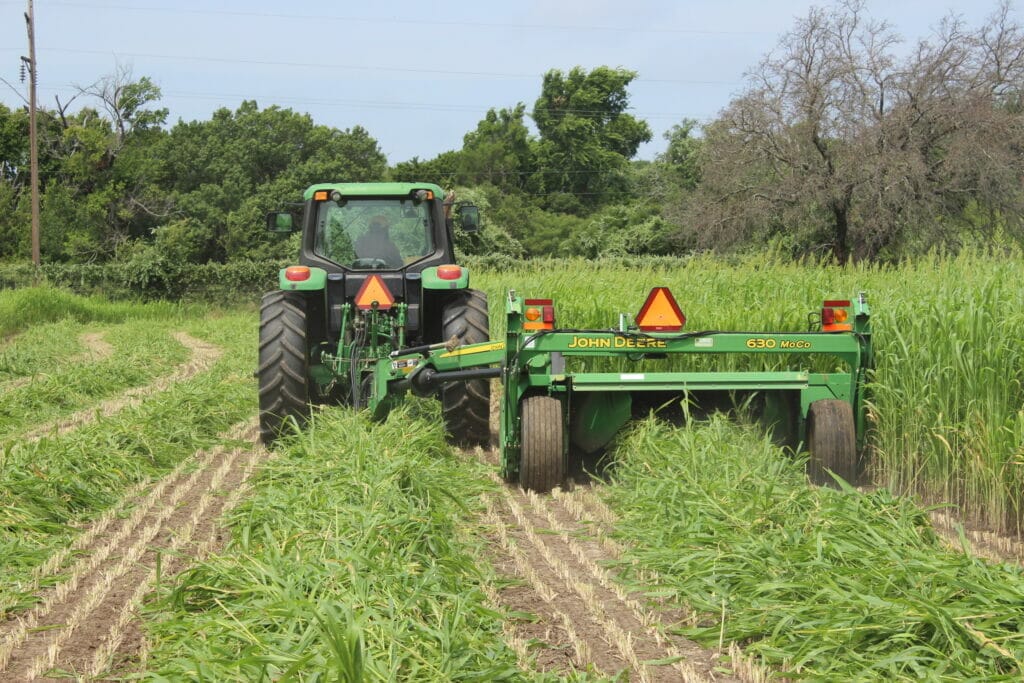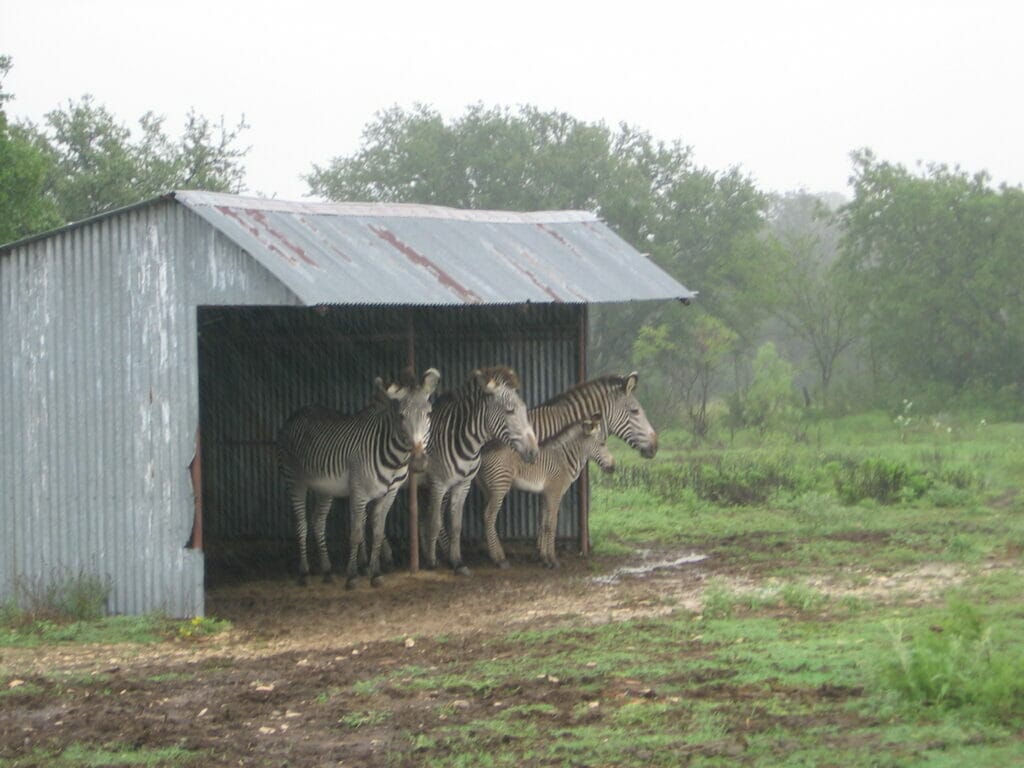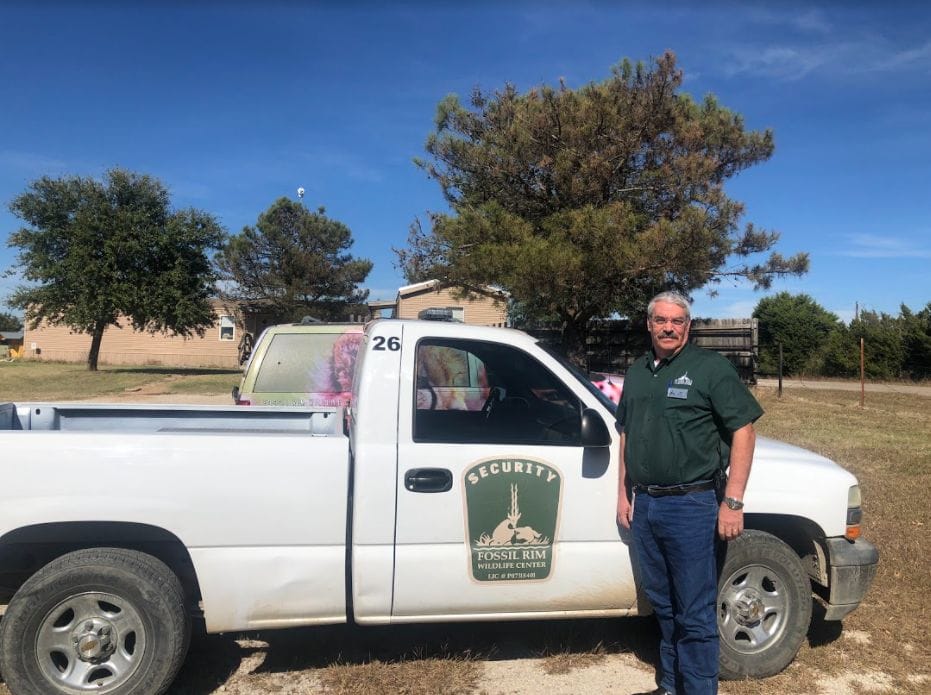Fossil Rim is a unique place, and not just because of our incredible animals. We’re an 1800-acre facility placed smack in the middle of several Texas ecoregions, like the great plains and the hill country. Our location, as well as the nature of what we do means we need to be prepared for anything. This could be severe weather, wildfires or even guest emergencies. In honor of wildfire month, we’re diving deeper into not only the precautions we take to protect our land, but how we integrate safety into everything we do, for both our guests and our animals.
The Land
If we want to ensure the safety and health of our animals, we first have to ensure the same for the land they live on. We take precautions to prevent plant overgrowth, replenish the nutrients in grazed land and keep parasite counts down. Luckily for us, many of these precautions go hand in hand.
The majority of Fossil Rim’s 1800 acres are accessible to wildlife, and that means constant grazing. Although our animals receive supplementary food, grazing is a natural instinct for many of them. While this is a good instinct, we want to avoid the problems that come along with overgrazing. Overgrazing can lead to soil erosion, a decrease in new plant growth, nutrient depletion, and a rise in parasite populations. To combat this, we not only occasionally close off some areas to give the grass a break, but also participate in controlled burns.
Burning Up

What’s a controlled burn? Exactly what it sounds like! Our staff will set purposeful fires in parts of our pasture to reap the benefits of a wildfire without the out-of-control destruction. To prepare for a controlled burn, we have to make sure all of the conditions are just right. Our county can’t be in a burn ban, and we need to have enough fuel to get the job done. This means they don’t happen every year.
Our animal care staff also makes sure to move animals away from the areas that will be burned, and any native wildlife knows to avoid flames. When we’ve determined that our fuel levels are good, and that weather conditions are stable, we may focus our burning efforts on our hay fields to get rid of any native annuals and replenish the soil with their nutrients. Burning other areas also has the added benefit of killing off parasite populations.

Other Methods
If the conditions aren’t quite right for burning, we still do our best to control the growth of certain flora species to conserve water and allow edible grasses to grow. Of course, we don’t like to use herbicides, as we don’t want to harm other plants or our animals. Instead, we use large machinery like dozers to remove trees that are hogging resources. We also shred our pastures rather than use chemicals to remove weeds whenever possible.
The Animals
Some of the most common questions we receive at Fossil Rim surround how we ensure the safety of our animals when it comes to things like severe weather. It’s important to distinguish just how different a wild animal’s experience of nature and weather is compared to humans, especially humans who live in cities. When we imagine tornadoes, we often imagine our houses torn apart, leaving us without shelter. For the animals at Fossil Rim, their response to weather is not based around losing possessions or getting to a man-made shelter. Rather, the same instincts that have protected Texas animals for thousands of years are the same that protect them today. In the event of heavy rain or hail, many of our species will seek shelter under the thick trees that fill our land. Others, like our more aquatic antelope, may choose to continue going about their day in the rain.
Shelter In Place
Although the trees offer ample protection, we have built many shed-like structures across our property that we keep lined with insulating hay to keep anyone who wants to use them nice and toasty. Should the weather take a worse turn, there is a good chance our animals have sensed the change long before it occurs. They will move to space as far away as they can get, and continue to shelter. Remember, our antelope don’t have to worry about the roof getting torn off of their home. The entire pasture is their house, and they know just where to hide.

This same logic applies to other natural occurrences in Texas, like wildfires. Animals of any species have deep-set instincts that cause a healthy fear of fire. If they sense danger in any direction, they will always flee rather than hang around to investigate. This, along with staff who are always on the lookout for fire threats, means they’re likely to stay safe in an emergency. Should an unplanned fire happen in one of Fossil Rim’s pastures, we have safety plans in place as well as ample fire extinguishing equipment to stop the spread.
The People
Arguably the biggest part of any safety plan is people; how they respond in an emergency and what measures are taken to prevent an emergency. At Fossil Rim, we’ve established plans to deal with everything from a guest’s allergic reaction to a vehicle breaking down. We run drills consistently and have established relationships with local police and fire departments to ensure they have quick and easy access to our park.

Another big part of safety at our facility is security. We have a designated head of security who patrols the park, keeping an eye out for anyone in need. The next time you’re visiting, don’t hesitate to reach out for assistance. We are all about education and conservation, which means we’re all about being smart and staying safe!

